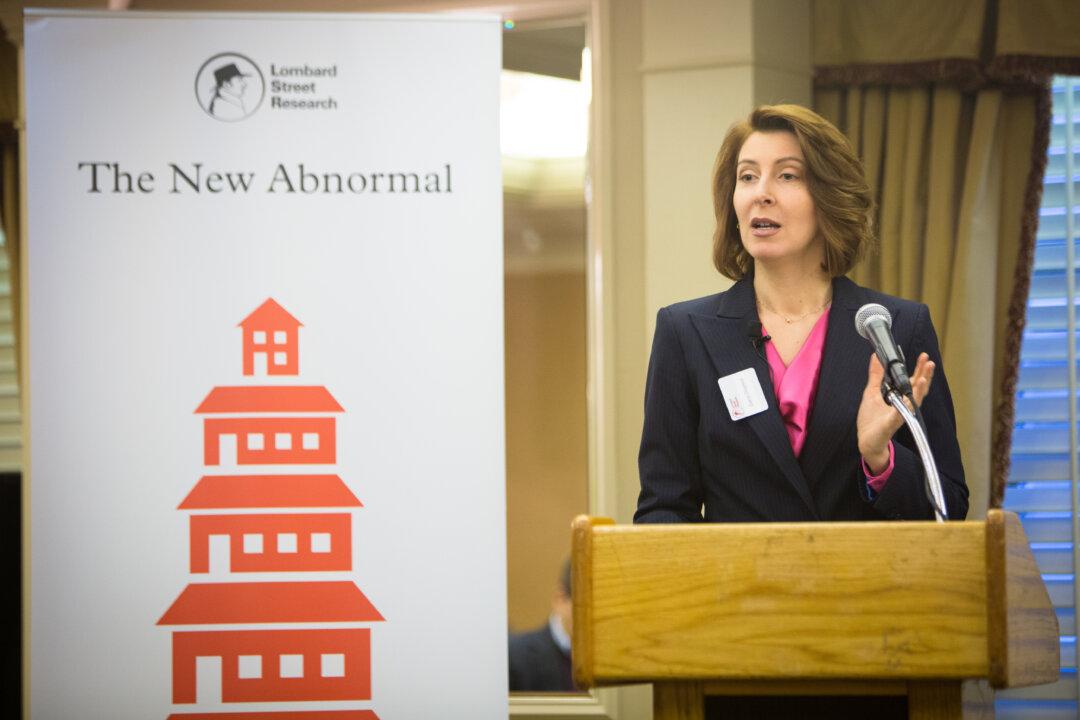NEW YORK—The International Monetary Fund will make a decision in November that may be the beginning of the end of the China as we know it.
The IMF will most likely vote to include China’s currency in the basket, which makes up the fund’s own reserve currency, the Special Drawing Rights (SDR).
For many, this decision is just a reflection of China’s economic rise and a means to control it within the framework of international finance.
For others it could mean the end of China as we know it.
“If China fully integrates its financial system, the leadership framework and the whole power structure will be radically changed,” Fraser Howie, the author of “Red Capitalism” said at a panel discussion hosted by Lombard Street Research in New York on Nov. 4.
Howie thinks market control over interest rates—centrally controlled—and the exchange rate—pegged to the dollar—are incompatible with the current power structure of the Chinese Communist Party (CCP), which has enriched party elites at the expense of the people.
The CCP only has a small margin of error if it wants to fully liberalize its exchange rate by 2020. “The window to clean things up is very tight. It’s a very fine balancing act they have,” he said.
Diana Choyleva, chief economist of Lombard Street Research, doesn’t think change has to be as dramatic, but also warns of a difficult road ahead.
“A successful transition means continued financial distress and continued weak growth as Beijing cleans up the past excesses,” she said at the panel discussion. “China can only be successful with this transformation if the rest of the world is ready to accept the consequences. It’s a tall order.”
Consumer Demand
According to Choyleva, China will have to create its own consumer demand as the rest of the world is simply not big enough to absorb all of China’s production as it moves up the value chain. “The easiest way to do that is to free capital flows and allow the market to determine the interest rate and the exchange rate,” she said.
Higher interest rates for savers mean more income for consumers. A market based interest and exchange rate also means more efficient investment and more growth in the future. This process could also correct many of the global imbalances, like the excessive trade deficit the United States runs vis-à-vis China.
Fraser Howie agreed, “If you are going to reform your economy the best place to start is valuing money properly.” So far, China has removed the cap on deposit rates, which it previously held at an artificially low rate to punish savers.
However, Choyleva also thinks a favorable outcome of China’s liberalization is far from certain.
“They could just simply botch the job. We have all seen what happened with the equity market over the summer,” she said.
And if slow growth—Lombard said GDP only grew 1.5 percent in the third quarter—spills over to the labor market, Beijing might not stay the course of reform.
“With the potential to bring social discontent, this will be the real test for Beijing,” she said. According to her sources on the ground, the labor market already started to weaken in the third quarter of 2015.
Either way, the panelists agreed it would be better to include China in the SDR system. If not, it may become a full participant in the global currency wars.
“If the yuan is not accepted in the SDR they will go for a one-off large devaluation. This is going to be a real economic crisis,” she said. So far, the eurozone and Japan have both undertaken large scale quantitative easing, pushing the value of their currencies down.
In a comparatively weak response, China only devalued the yuan by 3 percent in August this year.





